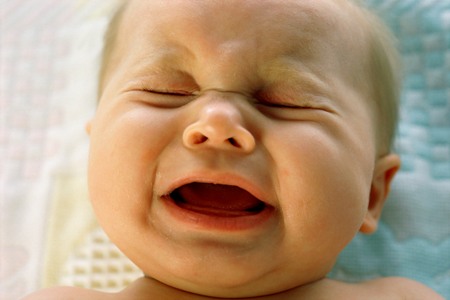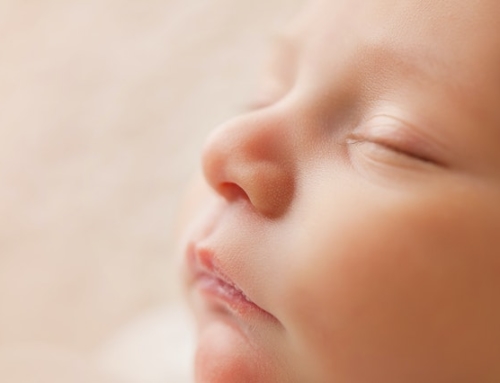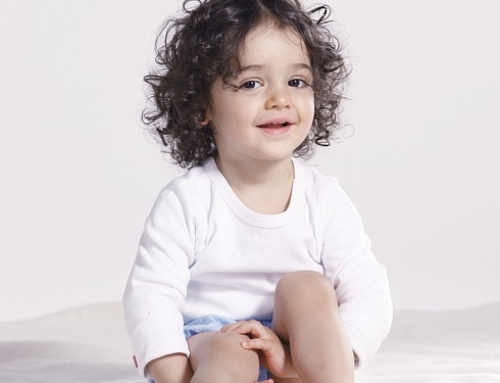
Source: Unknown
Recent reports of research out of Australia suggest that babies who are fussy or distressed as infants have a much larger risk of having later mental health problems in childhood and beyond. The reports are based on research presented at the Australasian Sleep Association conference and comes from the Murdoch Institute in Australia. Specifically, the findings are from a longitudinal study of over 1000 babies and found that those classified as “extremely unsettled” at 1 year of age (which was 3.4% of children) were 10x more likely to fall into the clinical range for mental health problems by age 11 (27% of children who were extremely unsettled were in the clinical range). Notably, “extremely unsettled” was classified not just as sleeping problems, but a cluster of behaviours, including unsettled sleep, excessive crying, feeding difficulties, mood swings, and tantrums. When sleep was the only issue, there was no increased risk for later mental health problems.
There are a few things to discuss with respect to these findings. The first is that because this was a presentation at a conference (though it will come out in Pediatrics later on), we have just reports to go on and cannot assess the quality of the data. This is a limitation but I still believe there is enough to discuss, especially because I don’t doubt the veracity of the findings.
Let’s start with the discussion of the potential mechanisms behind this association. There is definitely the possibility that this is a result of genetics. We know there are genetic components to many mental health issues and this could be an early manifestation of these genetic predispositions. Of course, in the vast majority of cases, it seems like there’s also the gene-environment interaction that must be taken into account. Thus, there may be some other third factor that triggers this for these particular children. Unfortunately, without the data at hand, I don’t know what else was assessed and what may or may not have been included as possible covariates; however, we know that there are variables – like poverty, for example – that increase the risk for mental health problems generally and may have a greater impact in infancy than previously known. I can only express that I hope more research will be done on these areas to try and identify possible factors ahead of time.
I also believe there is potentially an even greater issue: interactions with caregivers. This is what struck me most when I first read the reports on this research. If you’ve ever had a child who had bouts of being difficult – either crying excessively, having tantrums, not sleeping – you know how hard it is to remain calm, loving, and sensitive to your child. Every button is pushed and every fiber of your being is screaming out (likely due to the fact that we have no experience in handling such intense, negative emotions). You can feel resentful, angry, frustrated, and all this is compounded by that fact that you are likely in a society that is not supportive of parents and families and sets unrealistic expectations for young babies in just about every realm.
If we think about this type of ongoing interaction from the perspective of a child, you have a child who is struggling (because yes, all of these are struggles for the child, not a child looking to make your life hard) and now faces negativity from their primary caregiver. This increases the risk for insecure attachment – which we know is linked to later mental well-being – and feeds a cycle of negativity. A child whose parent is not responsive and sensitive may act out more because s/he doesn’t feel loved and this acting out then leads to more negativity from the parent.
This is not, however, a statement on the parents, but rather a statement on the society in which we live and the parenting practices we advocate for. Wonderful parents can be told they are at fault for a distressed baby and that the only way to stop it is to shut the child out even more. Heck, even parents who have happy, healthy children are given grief for practices that counter the societal norm of forcing separation under the guise of building independence. We are also a society of adults who likely never had much experience in simply accepting negative emotions given that our own were often put down or dismissed. We have been told over and over that negative is bad and expressing negative emotions often gets us in trouble instead of getting the help we need.
YET… yet we have these children who are struggling. They are really struggling and likely the one thing that can help them through is even more responsiveness, sensitivity, and an attempt to really look for the underlying cause. In addition, many of these symptoms exist when children have an underlying health issue that isn’t diagnosed and if you have a child that is struggling physically and then receives negative interactions as a result, is it any wonder they grow up with a greater risk for mental health problems?
What can we do?
I think the primary take-home is correctly about identifying an intervention, but I don’t think the ones most people think of will be where I go. I think the intervention needs to be based on the following:
- Identifying the underlying cause of distress for the infant/child. This may be health, sensory, genetic, early feeding issues continued, or it may never be identified, but the effort should be there in case it is something that is fixable.
- Support for parents. This is really the crux of things and requires ongoing support for the parents’ well-being and strategies to cope with the difficult times while still remaining responsive. This would likely include self-care items like mindfulness training, therapy, and practical support for those who struggle to just keep up with everything when the child requires so much from them.
- Direct support for any siblings. We often think of parents, but not siblings, and yet we know that children who have siblings who command a lot of attention (be it for medical or other reasons) can struggle in the long-run if the family can’t find the time for them. Having practical, direct support for siblings (including support so parents can spend time with the siblings) is essential.
- Public outreach. Yes, we need public outreach to change the dominant societal views on what constitutes “good parenting”. We are so far removed from what is biologically normal for children that something has to be done and this is a perfect avenue to begin to explore it.
I certainly don’t believe we need more training or separation interventions and I sincerely hope that those researchers taking the next steps can work to ensure that sensitivity and responsiveness for all involved are the focus moving forward.






[…] Read more at https://gku.flm.mybluehost.me/evolutionaryparenting.com/fussy-babies-and-later-mental-health-problems-a-discussion/ […]
My child was the best sleeper and non demanding generally although some what tentative. He however struggled with anxiety issues in childhood and as a young man.